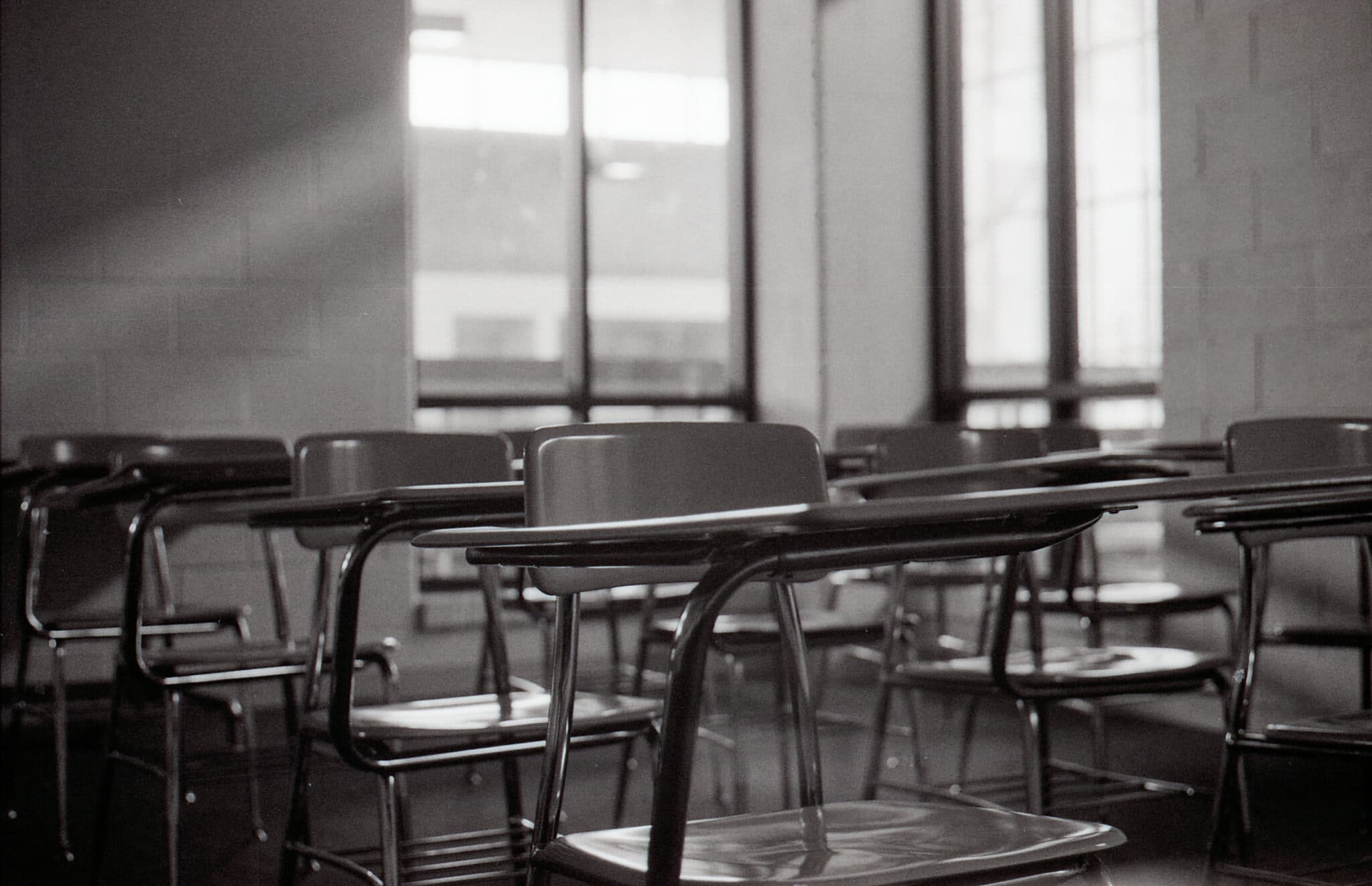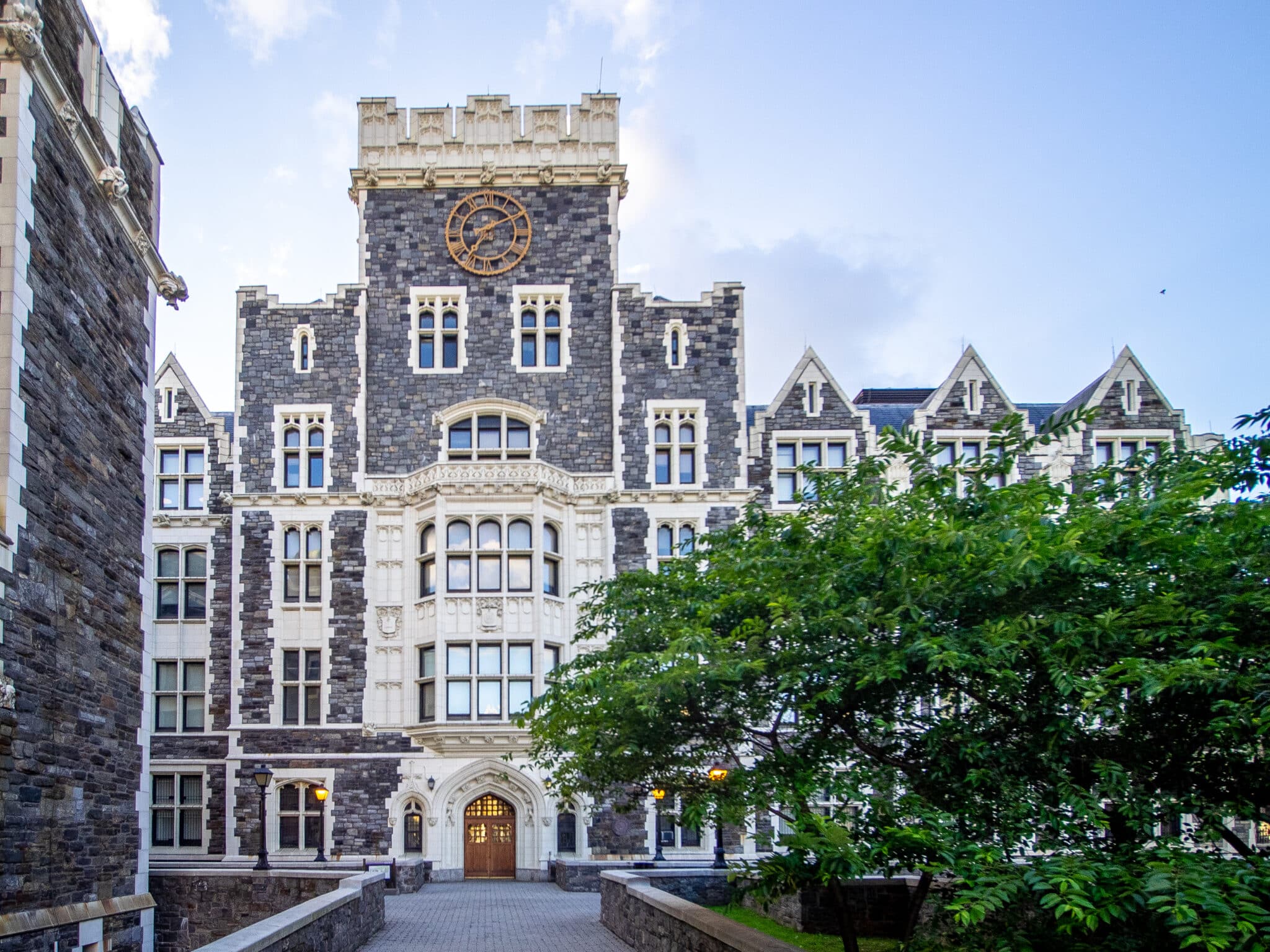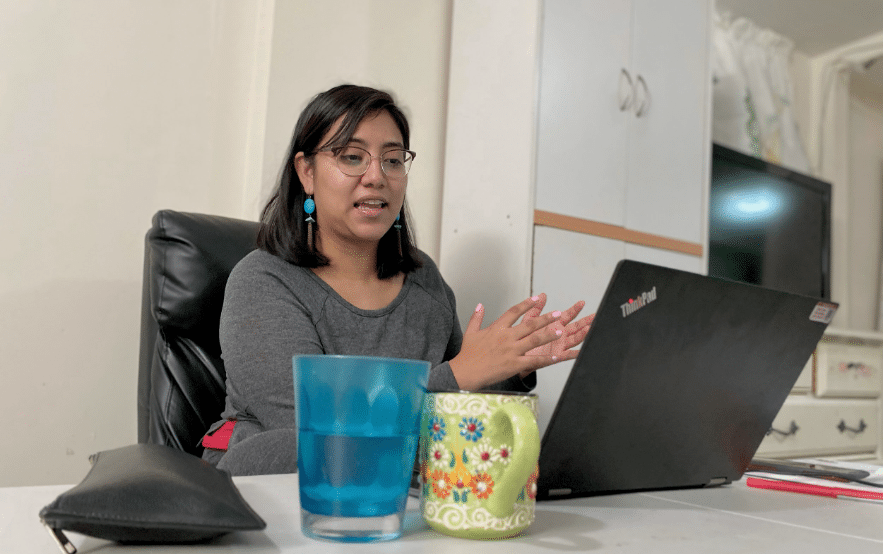COVID-19 has left classrooms empty. Photo by Don Harder on Flickr.*
The coronavirus upended college education, especially for students who are the first in their families to move beyond high school. “When you’re at home, the environment makes it difficult to be motivated,” Maurice Matthews, a York College junior, said. After CUNY switched to online classes to fight the spread of COVID-19, he began to fall behind. “It’s not just the class itself being online…. You feel disconnected and checked out from school,” he said.
Online learning provides challenges. Internet service is spotty or weak in some neighborhoods, and some families don’t have access to it all. “A lot of people in low-income homes don’t have a good Wi-Fi connection, so this is another problem,” he added, speaking for himself and many other first-generation students. If their only outlet for communicating with professors is via the Internet, it’s more challenging to keep up with their coursework. “I can still get everything done, but it will definitely be harder,” he said.

Ashley Vargas, a first-generation student at Rowan University in New Jersey, came back home to New York City as a precaution to avoid COVID-19. She said, “Having no support system is a unique struggle. It’s more stressful and overwhelming for first-generation students to get through this. People who aren’t can ask their parents for help. First-generation students don’t have that option.” Ashley lives with her aunt, and although her extended family was happy to take her in, her struggles with maneuvering through the rest of the semester remain an issue.
During the school year, many first-generation college students rely on their schools for support in terms of housing, finances, and educational resources. “Twenty-seven percent of first-generation students come from households making $20,000 or less, compared to 6 percent of non-first-generation freshmen,” says a 2018 Postsecondary National Policy Institute (PNPI) study. This added financial burden makes it difficult for first-generation students to access resources such as laptops or Wi-Fi at home. Without these tools, it is nearly impossible for students to complete their online classes effectively.
Some schools have programs in place to support first-generation students. Ashley talked about Rowan’s efforts to help. “I think my school does a good job of being inclusive for first-generation students because they have a club for it, which I’m a part of. It’s like a support system where you can connect with people going through the same thing as you,” she said.
Maurice from York College said, “My school is in Jamaica, so a lot of students are less wealthy. There are always people to talk to, such as advisors. They understand their student body and try their best to help them with their needs.” According to a CNBC article, Yale University students have a program called “First-Generation Low-Income at Yale, or FLY.” Although students are still struggling because of the recent changes caused by the coronavirus pandemic, programs like these give students someone to talk to. While more practical help in terms of finances and housing might be more difficult to come by, emotional support is certainly needed by students everywhere right now.
*Featured image by Don Harder on Flickr
Tags: Alysse Rodriguez CCNY City College Journalism College Coronavirus COVID-19 Cuny First generation FLY NYC Online College Rowan University students York College
Series: Coronavirus






